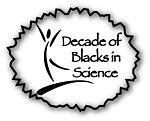Originally conceived as a Science Blogging conference for science bloggers in the Research Triangle, North Carolina (because obviously that little piece of real estate is the center of the science universe) it has expanded into something more, something grand, something viral. ScienceOnline is an international meeting of hearts, minds and modems of scientists, communicators, and students of all ages & levels who have at least two things in common – Science and the Internet.
There were 5 sessions that discussed Diversity and Outreach – the hurdles, the successes, and new directions.
· Casting a wider net: Promoting gender and ethnic diversity in STEM (I was supposed to co-moderate this one)
· Talking Trash: Online Outreach from the Great Pacific Garbage Patch
· Citizen Science
· Citizen Science and Students
· Science Education: Adults
· Martin Luther King, Jr., Memorial Session: Engaging underrepresented groups in online science media. At first I thought this session and the Casting a wider net session were redundant. But co-moderator and college professor/administrator Abel Pharmboy presents this topic in a new and compelling way in his post #scio10 Martin Luther King, Jr. Memorial Session: Engaging Underrepresented Groups in Online Science Media
Janet D. Stemwedel of Adventures & Ethics in Science seemed to be everywhere at once. She seemed to have attended every one of these panels and live-tweeted like crazy. She recaps her tweets:
· #scio10 aftermath: my tweets from "Martin Luther King, Jr., Memorial Session: Engaging underrepresented groups in online science media".
· #scio10 aftermath: my tweets from "Talking Trash: Online Outreach from the Great Pacific Garbage Patch".
· #scio10 aftermath: my tweets from "Casting a wider net: Promoting gender and ethnic diversity in STEM".
and also offers thought-provoking summaries from the sessions as well:
· scio10 aftermath: some thoughts on "Casting a wider net: Promoting gender and ethnic diversity in STEM"
· #scio10 aftermath: some thoughts on "Talking Trash: Online Outreach from the Great Pacific Garbage Patch".
Greg Laden, who is always a slice of heaven, gives a very good overview of all of the sessions he attended, which included the Citizen Science session and the MLK Memorial Session in #scio10 Science Online 2010 recollections and reflections on the sessions I attended.
And one of my newest blog friends, Vicky of TGAW (and I’m really sad I didn’t attend and meet her) had me in near tears with her post Science Online 2010 and the Neighborhood Kids – Community and Role Models. This summary is one of my very favorites from the conference. Vicky and her husband Ryan of Ideonexus, completely embody the heart and soul of casting a wider net in STEM. She weaves personal accounts of their experiences with teaching, providing laptops, and free internet access to the neighborhood kids as she summarizes the sessions related to diversity and outreach. Ryan's summaries were on point, too.
· Science Online 2010: Casting a Wider Net: Promoting Gender and Ethnic Diversity in STEM
Last, but certainly not least is Dr. Isis’ account of online diversity and inclusion in her always straight-forward and provoking way. MLK Day, Blogrolling, and Protecting Your Brand briefly summarizes her take home points from the MLK Memorial Session and how African-American and Latino Americans are over-represented in the mobile tech markets. Everyone who attended that session noted this and all agreed that IF we are serious about engaging these audiences in STEM, then we must meet them in their preferred social media space….Hmm…That has me thinking – Urban Science Adventures! © on a Blackberry, iPod, or mobile phone near you….
Finally, Dr. Isis is reminded by one of her readers, and in turn reminds us all, that Including Disability in Diversity Discussions #scio10 is equally important. I admit to dropping the ball on this one, not because it isn’t important, but because of my lack of experiences. So, this carnival will also highlight Inclusion efforts and role models of people with disabilities in STEM.
Be sure to check out the video mash up of the ScienceOnline 2010 conference.
Science Online 2010 Flickr/Picasa mashup from Graham Steel on Vimeo.






 I think shooting local scenes was important. A couple of kids knew this spot exactly.
I think shooting local scenes was important. A couple of kids knew this spot exactly.



 Chickory can grow anywhere. It is a hardy plant and very tolerant of poor soils. In fact, this patch of Chickory flowers were growing out of asphalt from an old parking lot of a closed down factory in North St. Louis.
Chickory can grow anywhere. It is a hardy plant and very tolerant of poor soils. In fact, this patch of Chickory flowers were growing out of asphalt from an old parking lot of a closed down factory in North St. Louis.



























